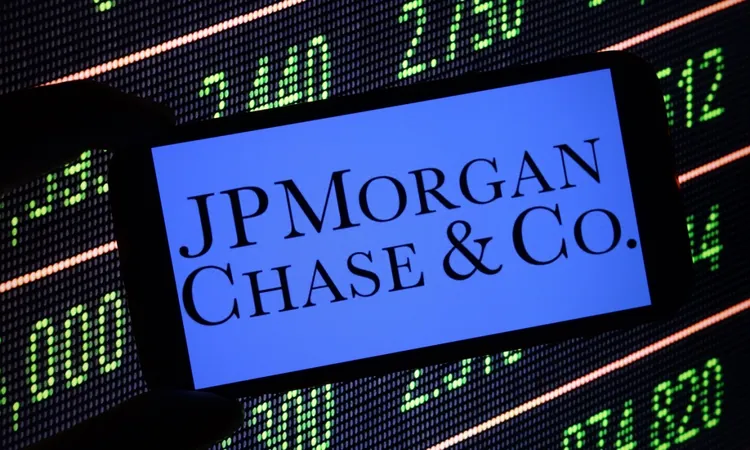
JPMorgan's Game-Changer Move: Will FinTechs Face Massive Data Fees?
2025-07-14
Author: Jia
The Stakes Are High for FinTechs
In a bold maneuver that could reshape the financial technology landscape, JPMorgan Chase is reportedly poised to impose significant fees on FinTech companies for accessing consumer bank data. According to a recent report from Bloomberg News, these fees could soar into the hundreds of millions, threatening the very core of FinTech business models.
New Pricing Structure Unveiled
Insiders reveal that JPMorgan has distributed new pricing sheets to data aggregators—vital intermediaries that link banks with FinTechs. These fees will not be uniform; instead, they'll vary based on how FinTech companies utilize the data, with those focused on payments likely to face the steepest charges.
Who Will Bear the Cost?
It’s expected that these fees will initially hit the data aggregators, who will then pass those costs onto the FinTechs, and likely, consumers themselves. This cascading effect raises questions about the sustainability of services provided by popular platforms like Coinbase, Venmo, and Robinhood, which thrive on seamless access to bank accounts.
A Strong Stance on Data Security
JPMorgan is backing its fee changes with a commitment to consumer security. A spokesperson emphasized the bank's investment in systems that prioritize data protection, stating, "We've had productive conversations and are working with the entire ecosystem to ensure we're all making the necessary investments in the infrastructure that keeps our customers safe."
Regulatory Uncertainty Looms
These forthcoming fees come amidst a backdrop of uncertainty surrounding the future of Section 1033, known as the "open banking rule." Finalized by the Consumer Financial Protection Bureau (CFPB) last year, this rule mandates banks to share customer data for free with other financial service providers. While advocates believe this promotes greater access and security, critics in the banking sector warn it could lead to increased fraud and liability.
The Future of Open Banking in Question
With the Republican administration seeking to overturn this rule, the future of open banking hangs in the balance. Recent research highlights that while 46% of consumers express a strong willingness to embrace open banking for payments and services, only about 10% have actually utilized these options. This indicates a vast untapped potential in the market.
A Double-Edged Sword for FinTechs
As the landscape shifts, providers face both significant opportunities and daunting challenges. Instant payments, fueled by open banking, could revolutionize consumer behavior and business transactions alike. However, how FinTech companies adapt to these new charges and regulatory changes will be crucial in determining their future viability.

 Brasil (PT)
Brasil (PT)
 Canada (EN)
Canada (EN)
 Chile (ES)
Chile (ES)
 Česko (CS)
Česko (CS)
 대한민국 (KO)
대한민국 (KO)
 España (ES)
España (ES)
 France (FR)
France (FR)
 Hong Kong (EN)
Hong Kong (EN)
 Italia (IT)
Italia (IT)
 日本 (JA)
日本 (JA)
 Magyarország (HU)
Magyarország (HU)
 Norge (NO)
Norge (NO)
 Polska (PL)
Polska (PL)
 Schweiz (DE)
Schweiz (DE)
 Singapore (EN)
Singapore (EN)
 Sverige (SV)
Sverige (SV)
 Suomi (FI)
Suomi (FI)
 Türkiye (TR)
Türkiye (TR)
 الإمارات العربية المتحدة (AR)
الإمارات العربية المتحدة (AR)